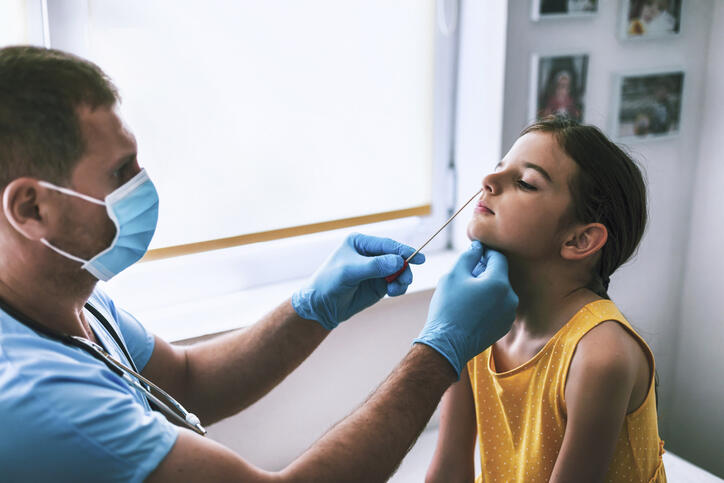
LSTM researchers, in collaboration with scientists from Oxford and the US, have investigated the immunological consequences of SARS-CoV-2 and Streptococcus pneumoniae co-infection.
During a viral infection, colonisation of the upper respiratory tract with certain bacterial pathogens is considered a major risk factor of disease severity, increased rates of hospitalisation and death. Interaction of Streptococcus pneumoniae and influenza virus increases the risk of secondary pneumococcal pneumonia.
However, LSTM’s Experimental Human Pneumococcal Carriage Consortium (EHPC) have observed that the order of infection is an important parameter when we study bacterial and viral co-infection. In a previous study of controlled human co-infection, the team observed that if the pneumococcus colonised the upper airway first, it reduced mucosal immunity to influenza viruses.
In this study, published in the journal JCI, the team investigated the relationship between pneumococcus and SARS-CoV-2 in two clinically distinct cohorts of
a) healthcare workers with asymptomatic or mildly symptomatic SARS-CoV-2 infection identified and
b) patients with moderate to severe disease who presented to hospital.
In both cohorts, the team examined the prevalence of SARS-CoV-2 and pneumococcal colonisation, associations of co-infection and disease severity, and evaluated immune responses and inflammation against SARS-CoV-2.
The team found that although pneumococcal colonisation did not associate with increased COVID-19 severity, it impaired both antibody production and levels of memory cells against the virus.
Dr Elena Mitsi, leading author on the paper, said: “The findings of the study are of great public heath importance. Pneumococcal colonisation may not associate with more adverse COVID-19 outcomes, however lack of immunity against the virus during the first interaction may promote long-COVID or facilitate reinfection.
Prof Daniela Ferreira, senior author on the paper, said: “It is crucial that we continue to study the interplay between pneumococcus and respiratory viruses, not only SARS-CoV-2 but also influenza and RSV. This will reveal how we can best use vaccines to protect against pneumonia”.
Dr Brad Gessner, Pfizer’s global medical lead for respiratory vaccines, continued: “These new findings further our knowledge regarding the interaction of pneumococci and viruses in the upper airway, which in turn may lead to improved prevention measures for respiratory infections.”
J Clin Invest. Streptococcus pneumoniae colonization associates with impaired adaptive immune responses against SARS-CoV-2 https://doi.org/10.1172/JCI157124.